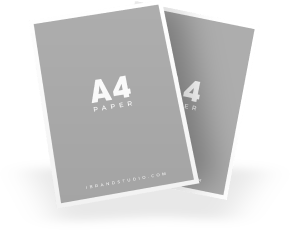Covering college costs can feel like a puzzle, but scholarships can be a key piece to making it more affordable without taking on debt. But how do they work? What types of scholarships are available? Where can you find them, and how do you increase your chances of winning? In this post, I’ll break it all down—covering everything from the different types of scholarships to the benefits, challenges, and best strategies for applying. Whether you're a high school student planning ahead or already in college looking for extra funding, this guide will help you navigate the scholarship process and maximize your opportunities.
What is a Scholarship?
Students can get scholarships to pay for their education. Scholarships are sums of money that do not need to be repaid, unlike loans. They can cover some or all of the tuition, fees, books, and living expenses of a student. Governments, corporations, universities, organizations, or individuals can offer scholarships. They usually award scholarships based on certain criteria, such as academic merit, financial need, athletic ability, leadership, community service, or personal characteristics.
Scholarships vary in amounts from a few hundred dollars to a full-ride scholarship. There are scholarships for all types of students, whether they are A students or average students.
You may also like:
- How to Get Scholarships in 2025
- Top 25 Scholarships for High School Seniors
- When Should You Start Applying for Scholarships
- How to Write and Edit Your Scholarship Essay
Where Do Scholarships Come From?
There are many sources of scholarships for students. Some of the most common ones are:
- State & Federal governments: State governments also provide scholarships for students attending public colleges or universities within their state or meeting residency and academic criteria. Meanwhile, the federal government offers multiple grant options, including the Pell Grant, which, similar to a scholarship, generally does not require repayment, with only a few exceptions.
- Colleges and universities: The majority of scholarships are awarded by colleges and universities. They offer scholarships to students either based on merit or need. Some of these scholarships are automatically awarded to students who meet certain criteria, such as GPA, test scores, or major. Others require a separate application and may have additional requirements, such as essays, letters of recommendation, or interviews.
- Private organizations and foundations: There are thousands of private organizations and foundations that offer scholarships for students. These scholarships may be related to the mission or vision of the organization, such as promoting a certain field of study, supporting a certain cause, or honoring a certain person. Some examples of private organizations and foundations that offer scholarships are the Coca-Cola Scholars Foundation, the Gates Millennium Scholars Program, and the Rotary Foundation.
- Local and community groups: There are also many local and community groups that offer scholarships for students. These groups may be affiliated with a certain religion, ethnicity, profession, or hobby. Some examples of local and community groups that offer scholarships are the Elks Lodge, the Lions Club, and the Rotary Club. These scholarships may have less competition than national or state-level scholarships, but they may also have lower amounts or more specific eligibility criteria.
How to Get Scholarships for College
Want to score scholarships for college? Here’s what you need to do:
1. Search for Scholarships. Start your search early! For private scholarships, check out databases like scholarships360.org, sallie.com, or raise.me. Your high school counselor may also have a list of scholarships that past students have won—so don’t forget to ask. But here’s an insider tip: the majority of scholarship money actually comes from colleges. When applying, review each school's website for scholarships that require a separate application. In many cases, simply submitting your college application automatically puts you in the running for institutional scholarships.
2. Apply for Scholarships. Once you find scholarships that fit, carefully follow the instructions and submit your application before the deadline. Many require essays, recommendation letters, or other documents—so don’t rush! Proofread everything before hitting submit. Need help writing a winning essay?
3. File the FAFSA. Some private scholarships, especially those based on financial need, require the Free Application for Federal Student Aid (FAFSA). Plus, colleges use the FAFSA to determine your eligibility for their own scholarships and grants—so don’t skip it!
4. Track Your Progress. Stay organized by keeping a list of the scholarships you’ve applied for, deadlines, and application statuses. A simple spreadsheet, calendar, or scholarship tracking app can help. If you haven’t heard back after a while, don’t be afraid to follow up with the scholarship provider.
Scholarships take effort, but the payoff can be huge. Start searching, stay organized, and go after those opportunities!
You May Also Like:
- 10 Colleges with Automatic Merit Scholarships
- Micro-Scholarships: How to Find and Win Them
- 10 Scholarship Facts You Should Know
- Financial Aid Guide
How to Get a Full Ride Scholarships?
A full-ride scholarship covers the entire cost of attending college—including tuition, room, and board. These scholarships are highly competitive and rare, typically offered by top colleges, universities, or organizations. To qualify, you’ll need outstanding academic, athletic, or artistic achievements, along with strong leadership, service, and character. Applying early and meeting all deadlines is crucial. Some well-known full-ride scholarships include:
Some Well-Known Full-Ride Scholarships
If you're aiming for a full-ride scholarship, here are some prestigious programs to explore:
- National Merit Scholarship – Awarded to students who score high on the PSAT/NMSQT and meet academic requirements. Some colleges offer full-ride scholarships to National Merit Finalists.
- QuestBridge National College Match – Connects high-achieving, low-income students with full-ride scholarships at top universities like Stanford, Yale, and MIT.
- Jack Kent Cooke Foundation College Scholarship – Provides full-ride scholarships to exceptional students with financial need who plan to attend selective colleges.
- Coca-Cola Scholars Program – Recognizes students with outstanding academic achievement, leadership, and community service with generous scholarship awards.
- Gates Millennium Scholars Program – Supports high-achieving minority students with significant financial need, particularly those pursuing STEM majors.
Each of these scholarships has specific requirements and deadlines, so be sure to research and apply early!
What are Merit-Based Scholarships?
Students who have academic, athletic, artistic, leadership, or other achievements can get merit-based scholarships. These scholarships reward the student’s talent, skill, or potential, not their financial need. Colleges, universities, organizations, or individuals can offer merit-based scholarships. Some examples of merit-based scholarships are:
- US Presidential Scholarship: The U.S. Presidential Scholars Program, established in 1964, honors the nation’s top high school seniors for academic excellence, artistic talent, and, since 2015, achievements in career and technical education. Each year, up to 161 students receive this prestigious recognition..
- National Honor Society Scholarship: The National Honor Society offers this scholarship to students who are NHS members and demonstrate excellence in scholarship, leadership, service, and character. The chapter determines the amount and criteria of the National Honor Society Scholarship, but it usually ranges from $1,000 to $25,000.
- Athletic Scholarship: Colleges and universities offer this scholarship to students who excel in a certain sport and recruit them to their athletic department. The sport, the division, and the institution determine the amount and criteria of the Athletic Scholarship, but it usually covers all or part of the cost of attendance.
- Artistic Scholarship: Colleges, universities, or organizations offer this scholarship to students who have exceptional talent or skill in a certain art form, such as music, dance, theater, or visual arts. The art form, the level, and the provider determine the amount and criteria of the Artistic Scholarship, but it usually requires an audition, a portfolio, or a performance.
What Scholarships Will I Qualify For?
The answer depends on your academic achievements, background, interests, and financial need. Since scholarships have different eligibility criteria, there’s no one-size-fits-all approach, but you can use these strategies to find the best ones for you:
-
Start early and plan ahead. The sooner you start searching, the more opportunities you'll find. Some scholarships have early deadlines, so don’t wait. Gather key documents—transcripts, test scores, essays, and recommendation letters—so you’re ready to apply.
-
Know yourself and your goals. Identify your academic strengths, career interests, and financial needs. This will help you target scholarships that align with your background, major, and aspirations.
-
Be open-minded and flexible. Don't limit yourself to just one type of scholarship. Apply for as many as possible—some may require stepping out of your comfort zone, like leadership roles, volunteering, or studying abroad.
-
Use multiple resources. Check online databases like Scholarships360, talk to your school counselor, visit your college’s financial aid office, and explore opportunities from local organizations.
-
Apply smartly and confidently. Only apply for scholarships you’re eligible for, follow all instructions, and submit before the deadline. Take time to write a strong essay, proofread carefully, and showcase your achievements, skills, and goals with confidence.
By taking these steps, you’ll increase your chances of finding and winning scholarships that help make college more affordable!
How Does A Scholarship Affect my other Student Aid?
Scholarships help cover college costs like tuition, fees, books, and supplies, but they may also impact your other financial aid. The key rule to remember is that your total aid—including scholarships—cannot exceed your school's cost of attendance.
If you receive a scholarship, your school may need to adjust your aid package, which could mean reducing loans or work-study. However, in some cases, a scholarship might lower your Student Aid Index (SAI)—formerly known as Expected Family Contribution (EFC)—or reduce your unmet need, making you eligible for more need-based aid, like grants.
To avoid surprises, report any scholarships to your financial aid office as soon as possible. They’ll update your aid package and let you know if any adjustments are needed.
Types of Scholarships
There are many types of scholarships available, and finding the right ones can make college more affordable. Here are some common types:
▶ Merit Scholarships – Awarded to high-achieving students based on GPA, test scores, or exceptional talent. Examples: Davidson Institute Scholarships, National Merit Scholarship, Eugene McDermott Scholars Program.
▶ Need-Based Scholarships – For students from low-income backgrounds or those demonstrating financial need. Examples: QuestBridge National College Match, Jack Kent Cooke Foundation Scholars Program.
▶ Athletic Scholarships – For students excelling in sports. Examples: NCAA Division I & II Scholarships, NAIA Scholarships, NJCAA Scholarships.
▶ Artistic Scholarships – For students with talents in music, art, theater, or debate.
▶ Scholarships by Ethnicity – Designed for specific racial or ethnic groups. Examples: Gates Millennium Scholars Program, American Indian College Fund, APIA Scholarship Program.
▶ Scholarships for Specific Majors & Careers – Awarded to students pursuing certain fields, such as teaching, engineering, or nursing. Examples: Barry Goldwater Scholarship, Tylenol Future Care Scholarship, Charles Butt Foundation Scholarship for Aspiring Teachers.
▶ Community Service Scholarships – For students making a difference through volunteer work. Example: Prudential Emerging Visionaries.
▶ Leadership Scholarships – For students demonstrating outstanding leadership skills. Example: Ronald Reagan Presidential Foundation & Institute Scholarship.
▶ Extracurricular Activity Scholarships – For students excelling in music, art, theater, or service. Examples: Scholastic Art & Writing Awards, Davidson Fellows Scholarship, Prudential Emerging Visionaries.
▶ Student-Specific Scholarships – Awarded based on unique backgrounds, affiliations, or interests, such as first-generation students or Boy Scouts members.
These scholarships can help make college more affordable and put your academic and career goals within reach.
Takeaway
Scholarships are one of the best ways to pay for college without taking on debt. They reward hard work, talent, and dedication, but they require effort—researching, preparing strong applications, and meeting deadlines. The key is to start early, stay organized, and apply to as many as possible.
There are scholarships out there for you—you just have to find them and apply! Good luck with your search!



